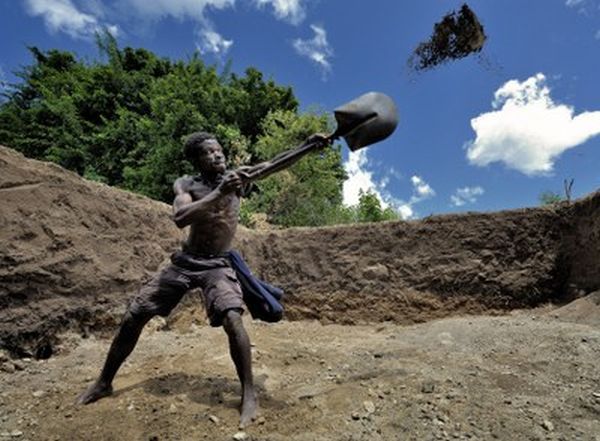

WEEK 6 - Water: a source of conflict and a source of peace building
By Rev. Frank Chikane
Rev. Frank Chikane is a former Director General and Secretary of Cabinet in the presidency of South Africa under Thabo Mbeki (1999 – 2008), Khalema Motlanthe (2008-2009) and Jacob Zuma (2009). He was also Director General in Office of Deputy President Mbeki and Deputy Secretary of the Cabinet during President Nelson Mandela’s Presidency.
In the following reflection, relating to his own context as well as from the biblical story of Isaac’s wells, he highlights how water can be a source of conflict as well as a source of peace-building. Water has the potential to create peace when it is shared.
Introduction
17 So Isaac departed from there and camped in the valley of Gerar and settled there. 18 Isaac dug again the wells of water that had been dug in the days of his father Abraham; for the Philistines had stopped them up after the death of Abraham; and he gave them the names that his father had given them. 19 But when Isaac’s servants dug in the valley and found there a well of spring water, 20 the herders of Gerar quarrelled with Isaac’s herders, saying, “The water is ours.” So he called the well Esek,[a] because they contended with him. 21 Then they dug another well, and they quarrelled over that one also; so he called it Sitnah.[b] 22 He moved from there and dug another well, and they did not quarrel over it; so he called it Rehoboth,[c] saying, “Now the Lord has made room for us, and we shall be fruitful in the land.”
Genesis 26:17-22
There is no doubt that God created the universe in a manner that makes all of humanity, not only interdependent, but dependent on the environment within which we live. It is God’s ecosystem we cannot ignore. I understood this as a young shepherd in Bushbuckridge, Mpumalanga where my family comes from, in South Africa. You knew in those grazing lands that green grass and water were critical for the survival of the stock in the same way as it was critical for us as shepherds to have water and food in those far places from home. Whilst the cattle could drink water from any source, we dug wells next to the river to have clean and healthy water. Collaborating as shepherds from different families and various places made it easier for us to have water.
But this was at times part of the conflict, if any one of us thought of the source as theirs alone, rather than a shared resource. In the Bible there are several instances of people fighting over water. The above story of Isaac digging up his ancestral wells for getting water and the local communities preventing him from getting access to the water is a case in point.
Later in life, I realized how interdependent we were with the nature around us and amongst us, and how the behaviour and our management of natural resources make us so dependent on one another.
Another Bible account, particularly the long wilderness journey of the Israelites from Egypt to Canaan, is set in a desert or semi-arid region. In the land of the Moabites, water was always a scarce commodity which determined where the Israelite sojourners would settle temporarily. This became a source of conflict between them and the Moabites who are their cousins, or brothers and sisters. In my first visit to Jordan, I was struck by the tour guide's reference to their cousins across the Jordan River.